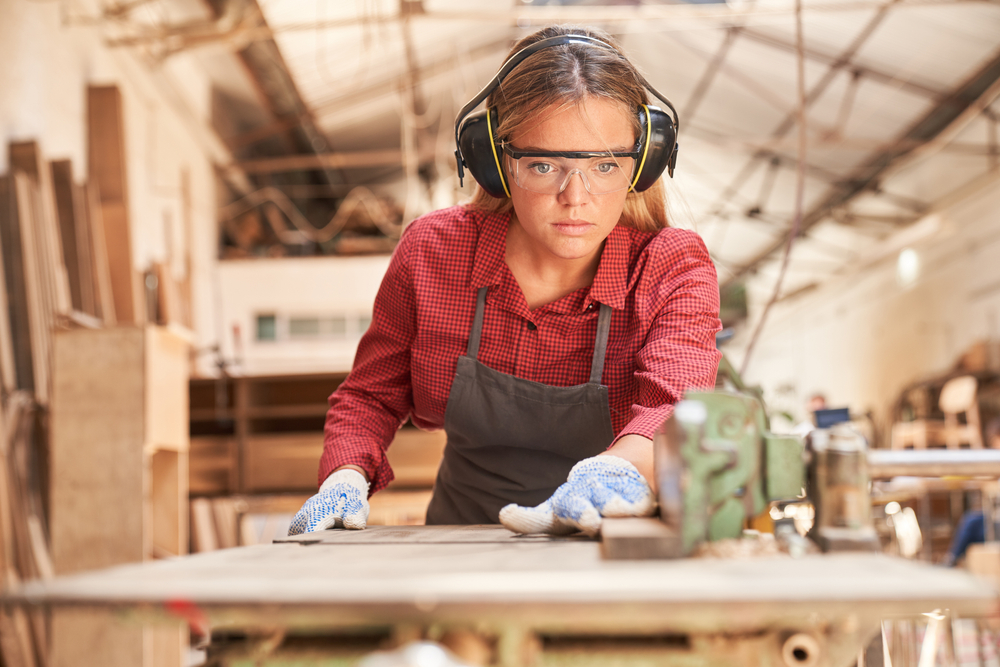Whether you’re attending concerts, at work, or doing some yard work, hearing protection is essential in keeping your ears safe against hazardous noise levels. However, you could be left exposed to possible risks if any one of a number of possible factors interferes with your hearing protection’s effectiveness. In order to understand and successfully maximize the benefits of your ear protection, it’s essential to understand these issues.
Common reasons why hearing protection falters
Even when you observe best practices, unforeseen difficulties can occur. You wear your earmuffs diligently at work, use earplugs at concerts, and avoid noisy situations whenever you can. Yet, certain variables can still disrupt your hearing protection’s effectiveness. Fortunately, you can ensure the protection of your hearing by becoming aware of these common issues and making educated adjustments.
1. Specific situations call for specific types of hearing protection
The effectiveness of hearing protection can be decreased by selecting the wrong type for the given situation.
In general, hearing protection falls into two main categories:
- Earmuffs: Larger, headphone-like device that goes over the entire ear.
- Earplugs: Little foam or rubber plugs that insert securely into the ear canal.
Each kind has its ideal use case:
- Earmuffs are better for settings with intermittent noise, like a construction site where machinery starts and stops frequently.
- Earplugs are best suited for settings with constant noise levels, like factory floors or airplane cabins.
Earmuffs are easier to manage when there is a need to frequently put on and remove your hearing protection. Disposable earplugs, on the other hand, can leave you susceptible to hearing damage because they can be easily lost. The first step towards successfully safeguarding your hearing is to select the right type of hearing protection.
2. Individual anatomy effects fit and effectiveness
Every individual’s ears are unique, meaning that not all hearing protection devices will fit everyone equally well. Standard earplugs and earmuffs are usually designed with average dimensions in mind, but your ear anatomy may require a more personalized solution.
- Larger ear structures: Earmuffs could be uncomfortable if your ears are larger than average creating gaps in the seal.
- Smaller ear canals: The noise-blocking capability of standard-sized earplugs may not be effective if smaller ear canals impede the formation of a sufficient seal.
Ill-fitting hearing protection can result in frustration and a desire to abandon their use entirely, putting your hearing at risk. If you spend significant time in loud environments, think about investing in custom-molded earplugs or professionally fitted earmuffs. These personalized solutions provide optimal comfort and effectiveness, ensuring you remain protected in any situation.
3. Failing to maintain or replace hearing protection
In order to stay effective, hearing protection devices need to be correctly maintained just like any other devices do. Wear and tear, improper cleaning, and disregarding replacement schedules can all undermine their ability to protect your ears.
Here’s how to maintain your hearing protection:
- Replace Cushions: The pliability of earmuff cushions can decrease over time. In order to maintain a proper seal, replace the cushions when needed.
- Clean Properly: Debris and earwax can build up on your hearing protection over time. In order to safely and effectively clean your earplugs or earmuffs, consult the manufacturer-recommended cleaning guidelines.
- Inspect for Damage: Check the elastic band on earmuffs regularly. Their ability to efficiently block noise can be compromised if the elastic band is loose or stretched.
Your hearing protection will be less effective and potentially useless if you disregard these simple maintenance duties. In order to ensure consistent and effective performance, and to extend their lifespan, it’s essential to keep these regular maintenance routines.
What is the role of a hearing specialist?
If you’re unsure whether your hearing protection is getting the job done, schedule an assessment appointment with us. We can examine your present devices, recommend alternatives, and even offer custom solutions tailored to your particular needs.
Keeping your hearing safe is a commitment that lasts a lifetime and it’s essential that you do it with the proper tools. By dealing with these common challenges, you can confidently protect your ears from harmful noise and preserve your hearing for years to come.

